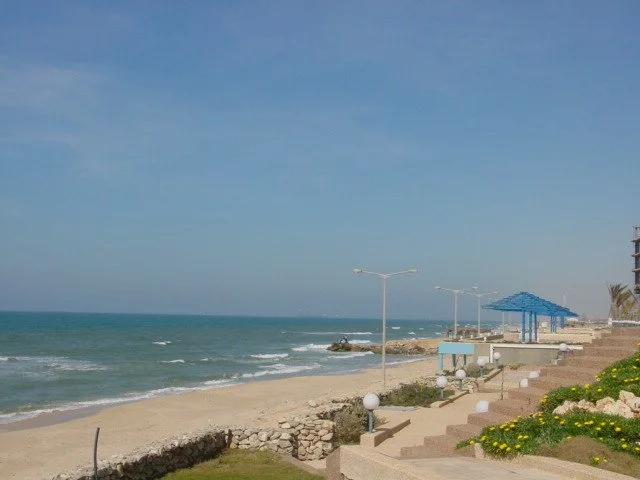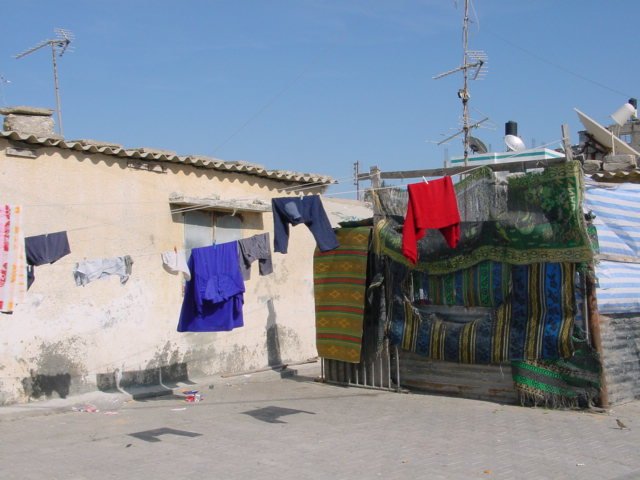March 4, 2001
The transmission has been located, but not in time to depart for the 'Eid (holiday). We got away anyway - our neighbor was headed down to the Gaza Strip to see his family and invited us to come along. Since the restart of the Intifada, access into and out of Gaza has been tightly limited, and we had been anxious to go and see life there. When we hit traffic outside of Netanya, we turned on the radio to hear about the bomb that had killed three there this morning. The cycle clearly continues...
We arrived to Gaza and passed through the Erez checkpoint (it has been built up now to look like a huge international border, more than US-Mexico). We had no problems, as we were all American or European nationals in an E.U. car. On the other side, we found the waiting taxis who have had little to no work for months. Now no Palestinians are permitted to leave to work, and no Israelis - except settlers and soldiers - are permitted to enter. It is completely cut off.
The expectantly vacant tourist industry in Gaza along the picturesque Mediterranean.
We began our fifty kilometer journey to Abasan driving along the beach. There we saw once-burgeoning efforts at building a tourist industry. In many ways, they stand like monuments to the empty promises of peace. Completed hotels are vacant. Many projects stand half-completed along the beautiful Mediterranean shore.
A scene from Gaza’s Beach Refugee Camp.
We then drove through the notorious Beach Refugee Camp (most of Gaza's population are refugees and their descendants from 1948), where people have built with little or no infrastructure except the little that the United Nations is able to provide.
The Great Mosque of Gaza City.
In Gaza City, we took a walk through the crowded souq (market) and ducked into the great mosque. One sheikh said it was OK for a Christian pastor to enter, the other said no. Marthame entered it - it had originally been a Canaanite Temple, then a Jewish Synagogue, then a Christian church (there is evidence of an old picture of St. Helena) before becoming a mosque.
The divided road: Palestinians on one side, Israelis on the other. If an Israeli is traveling, though, Palestinian traffic is held to a standstill.
Halfway to our destination we confronted the full absurdity of the Occupation and the Intifada. There is a road which is shared by Palestinians traversing the Strip and by settlers entering from the East into Kfar Darom. This stretch has been split lengthwise by concrete barriers, and Israeli tanks stand at each end of the road. Israelis travel on one side, and Palestinians travel on the other. When an Israeli car or truck enters the road, the soldiers halt all Palestinian traffic until the Israeli car passes. You know it is your turn to go or stop because they fire their guns into the air. 5000 Israeli settlers, 1.5 million Palestinians, and these ludicrous moments, after seven years of peace talks.
Elizabeth looks out over Abasan, Gaza, at sunset.
We made it to Abasan just in time to see the family's beautiful garden and enjoy our last meatless meal for a while.





